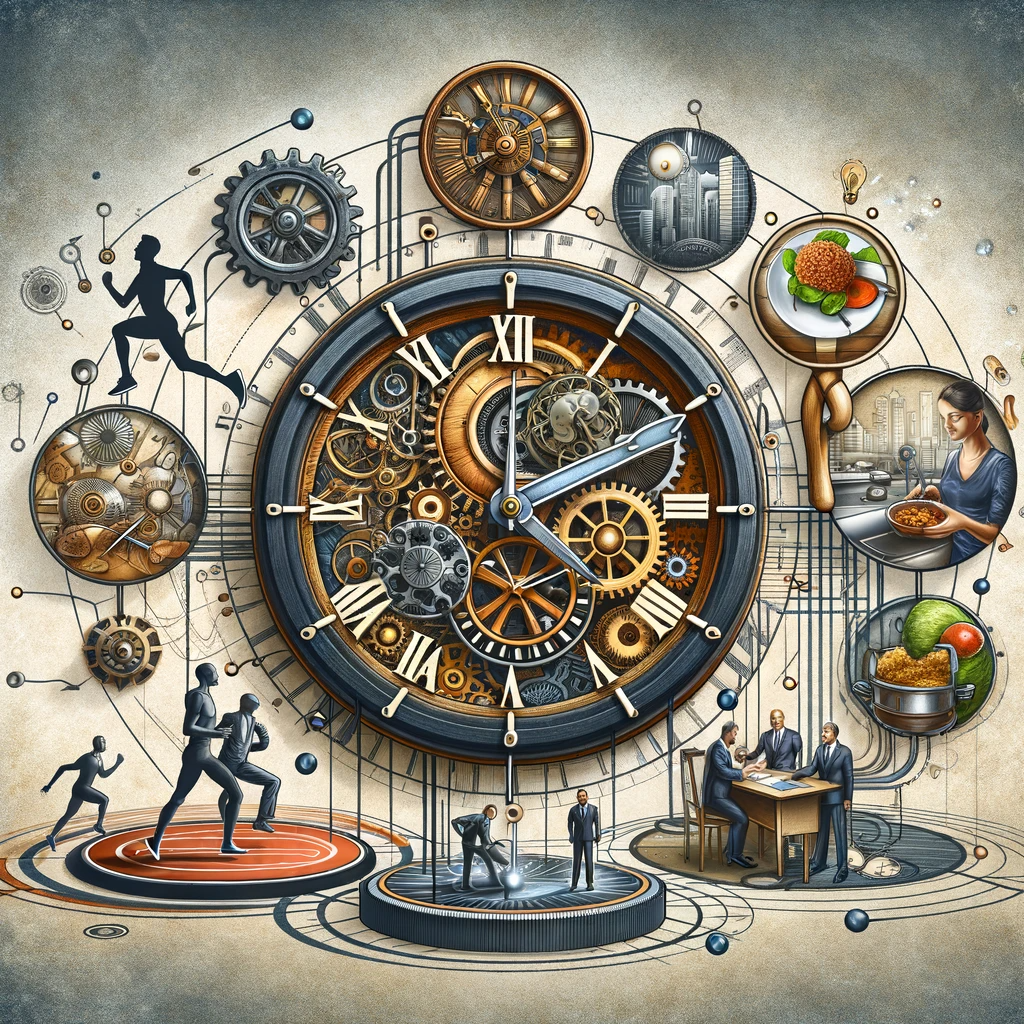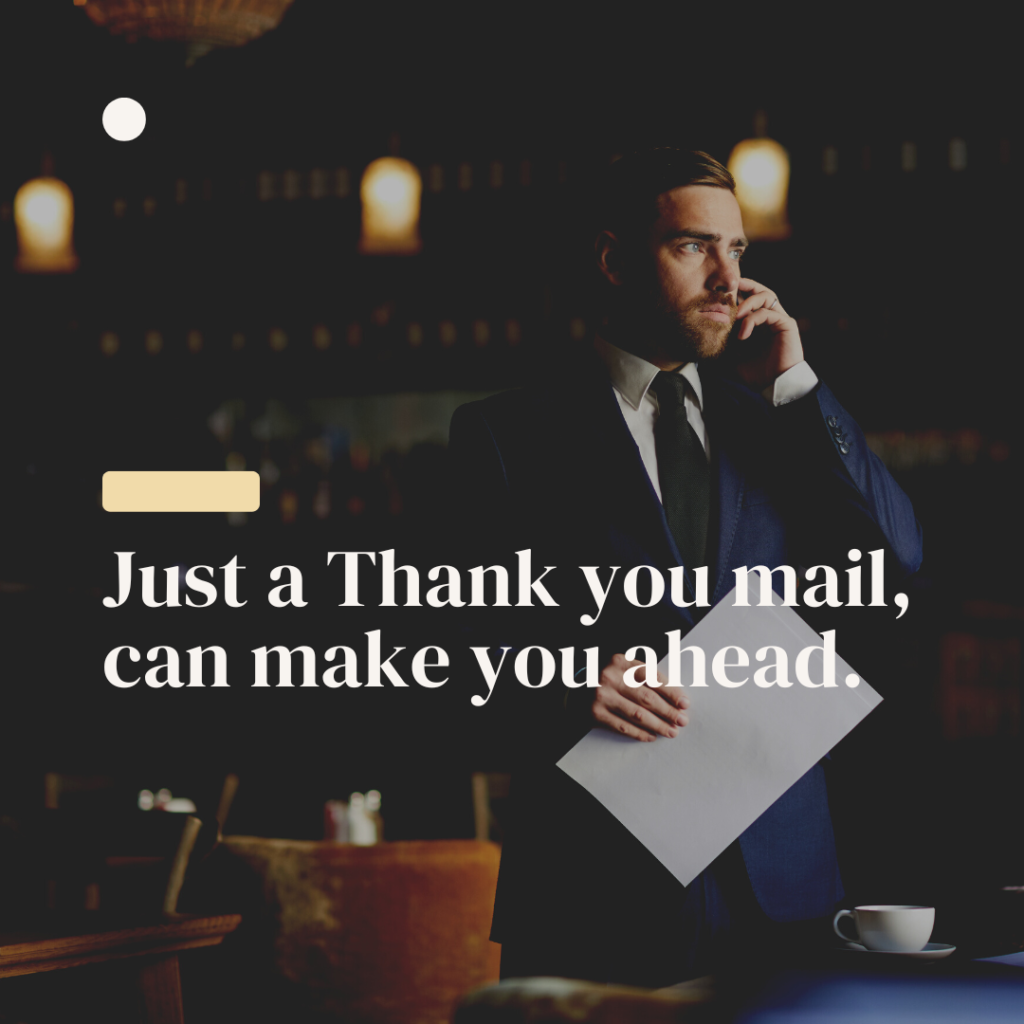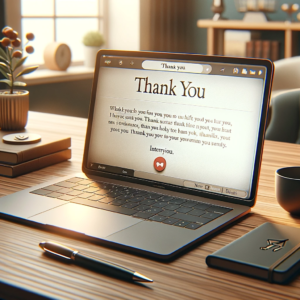Perfect Timing for Your Post-Interview Thank You Email. Unlock the secrets of ‘when to send thank you email after interview’ to make a memorable impression and boost your job prospects. Learn the art of timing and content in our comprehensive guide.
Unlock the secrets of ‘when to send thank you email after interview’ to make a memorable impression and boost your job prospects. Learn the art of timing and con

Table of Contents
Introduction
Imagine you’ve just finished a job interview. You’re walking out, feeling a mix of relief and anticipation. What’s the next step? A thank you email, of course! But when is the perfect time to send it? This article will delve into the intricacies of sending that crucial thank you email, ensuring it arrives at just the right moment to maximize its impact.
Understanding the Value of a when to send Thank You Email after Interview
A thank you email is not merely a gesture of politeness. It’s a strategic tool that can influence the interviewer’s perception of you. It’s your chance to reinforce a positive image, demonstrate your professionalism, and show that you’re genuinely interested in the role.
Timing Matters: Striking the Right Moment
The ideal time to send your thank you email is within 24 to 48 hours after the interview. This timing strikes a balance between promptness and giving yourself enough time to craft a thoughtful message. Sending it too soon might seem rushed while delaying it can make your interest seem lukewarm.

Crafting a Memorable Thank You Email
Your email should be succinct, genuine, and reflective of your enthusiasm for the position. Start by expressing your gratitude for the opportunity and the interviewer’s time. Highlight specific parts of the conversation that resonated with you, and reiterate why you believe you’re the right fit for the job. understanding the importance of “When to Send Thank You Email After Interview” is going to make you out of the crowd.
Avoidable Pitfalls in Your Follow-up
Common mistakes include sending a generic, template-like email, over-familiarity, or overly formal language. Spelling and grammar errors are also big no-nos. Tailor each email to the individual, keeping in mind the tone of your interview.
The Art of Personalization
To truly stand out, personalize each email. Mention a topic discussed during the interview, a shared interest, or a specific challenge the company is facing that you’re excited to tackle. This shows you were attentive and are already thinking about contributing to the team.
The Etiquette of Following Up
If you haven’t heard back within a week or two, a polite follow-up email is appropriate. Reiterate your interest and inquire about the next steps or the timeline for a decision.
Interpreting Interview Cues for Your Email
Your email should reflect the tone of the interview. If it is formal, maintain a formal tone. If it is more casual, a slightly relaxed tone is okay. However, always lean on the side of professionalism.
Technology’s Role in Your Follow-up Strategy
Email tracking tools can be useful to see if and when your email was opened. This information can guide your follow-up timing, but be cautious not to overuse it or come across as intrusive. Mark this for “When to Send Thank You Email After Interview”.
Real-World Examples: Learning from Others
Study examples of successful and unsuccessful “When to Send Thank You Email After Interview”. What made some stand out? Was it the content, timing, or personalization? Learn from these examples to refine your approach.
How Your Email Influences Job Opportunities
A well-timed, well-written thank-you email can tip the scales in your favor, especially in a competitive job market. It’s an opportunity to reinforce your skills, fit for the company culture, and eagerness for the role.

Industry-Specific Advice
The tone and content of your email may vary depending on the industry. For example, a creative industry might appreciate a more casual tone, while a finance role may require a more formal approach. So, When to Send Thank You Email After Interview, keep this very specific.
Cultural Nuances in International Interviews
Be aware of cultural differences in communication styles and expectations, especially if you’re interviewing with a global company. Researching the company’s culture can provide valuable insights.

Dealing with Silence After Sending Your Email
You’ve sent your well-crafted thank you email, but days have passed, and there’s no response. It’s a scenario many job seekers face, and it can be a source of anxiety and uncertainty. How do you handle this silence, and what does it mean for your application? Here’s a guide to navigating this waiting period with professionalism and poise.
The Importance of Meticulous Proofreading
It is as important as “When to Send Thank You Email After Interview”. Your email should be free from typos and grammatical errors. These can detract from your professionalism and attention to detail.
Conclusion: The Power of a Well-Timed Email
In conclusion, your thank you email is more than a courtesy – it’s an integral part of your job application process and time is all “When to Send Thank You Email After Interview”. It can significantly affect your chances of landing the job, so give it the attention it deserves. And remember always, it is timing which makes you move ahead of all, “When to Send Thank You Email After Interview”.

FAQs
- Is it okay to send a thank you email after a phone or virtual interview? Yes, the same rules apply. It’s always a good idea to express gratitude, regardless of the interview format.
- Can I include questions about the next steps in my thank you email? It’s generally best to focus on appreciation in the thank you email. If you have questions about the next steps, it’s better to include them in a separate follow-up email after a reasonable waiting period.
- Should I address the thank you email to all interviewers? If possible, send a personalized thank you email to each interviewer. This shows that you value the time each person took to meet with you.
- What if I realized I made a mistake in the interview? The thank you email can be a subtle opportunity to clarify any points you feel were misunderstood or not fully explained during the interview. However, keep the focus on gratitude and your qualifications for the role.
- Is it appropriate to follow up more than once if I don’t get a response? If you’ve already sent a follow-up email and haven’t received a response, it’s best to exercise patience and not send additional emails. Multiple follow-ups can be perceived as pushy and may negatively impact your candidacy.


Would you be all for exchanging hyperlinks?
Please share what sort of hyperlinks, would you like to exchange?
Your article helped me a lot, is there any more related content? Thanks!
Your point of view caught my eye and was very interesting. Thanks. I have a question for you.